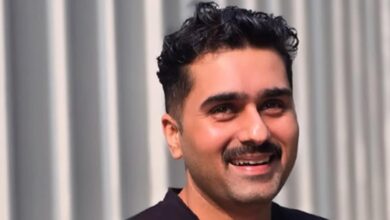‘I was underweight for 1.5 years,’ says Randeep Hooda after losing 18 kilos in 28 days

Randeep Hooda admitted that losing 18 kilos in 28 days was a ‘drastic’ measure to achieve the look for the climax scene in his last biopic, Swatantrya Veer Savarkar. “18 kilos in 28 days. Yes, I did that. It was a drastic step. I left eating and drinking. It was quick, and then I left it. I was underweight for 1.5 years,” said Hooda.
Asked if he would recommend the same to those looking to shed kilos, Hooda denied, adding that fasting is one of the best ways to lose weight and look good. “There is nothing better than fasting. Because in our entire life, our digestive system is working non-stop. And many of the issues stem from the stomach or the gut. So, when you fast, you are giving it time to recover. Fasting also gives you more energy compared to when you eat, and you tend to become lazy. You tend to feel active when you haven’t eaten. So, you can keep fasting for 1-2 days,” Hooda, 48, told digital creator Shubhankar Mishra
However, he said that one must be careful of what they eat or not when observing a fast: “You should not eat anything. Drink water, black coffee, or black tea. No lemon water, no coconut water. The longer you can keep a fast, the better it is for your health and also for your looks.”
Story continues below this ad
Is there any truth to this?
Is fasting really good? “(Photo: Getty Images/Thinkstock)
Hooda’s statement reflects a popular belief about fasting but needs context and caution, asserted clinical dietitian Garima Goyal.
Here’s a breakdown from a clinical nutrition lens:
What’s true?
Fasting can help the digestive system “rest”Intermittent fasting (14–16 hours) may benefit gut health, reduce inflammation, and improve insulin sensitivity.
Short-term fasting may improve alertnessSome people feel energetic during a fast because digestion demands energy, and certain hormones (like norepinephrine) may increase while fasting.
Where it needs caution:
*“The longer you fast, the better” — Not true for everyone, contended Goyal.Story continues below this ad
Extended fasts (24–48 hours) can stress the body, especially for:*Women with hormonal imbalances (e.g., PCOS, thyroid)*People with diabetes or low blood pressure*Those with a hory of eating disorders*Pregnant or breastfeeding women
Black coffee/tea vs lemon/coconut water“Hooda promotes a drier form of fasting (no calories at all), but this isn’t sustainable or beneficial for all,” remarked Goyal.
*Lemon or coconut water can be supportive during fasts, especially in India’s climate.*Electrolyte imbalance and dehydration are risks if people overdo “only water” fasting without guidance.*Generalising fasting for “looks” is problematic, pointed out Goyal.
According to Goyal, looking good doesn’t always mean being healthy. “Fasting can make some people feel lighter, but it can also trigger fatigue, nutrient deficiency, or muscle loss if not done mindfully,” said Goyal.Story continues below this ad
Things to note
Fasting isn’t a one-size-fits-all solution. Goyal said that while some principles are sound, turning them into a “the more the better” practice can be risky, especially when promoted without scientific backing.
What if you want to try?
*Start slow (12–14 hrs), not with 48-hour fasts.*Len to your body. Dizziness, fatigue, and irritability are red flags.*Not everyone should fast, especially those with medical conditions.*Fasting works best when combined with proper nutrition, hydration, and lifestyle, not as a quick fix, Goyal said.
DISCLAIMER: This article is based on information from the public domain and/or the experts we spoke to. Always consult your health practitioner before starting any routine.







